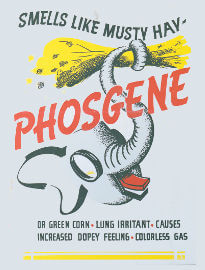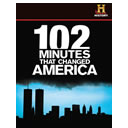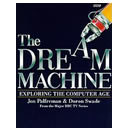The War that Changed the Course of History
The First World War, otherwise known as the Great War, claimed the lives of millions and forever transformed the psyche of each participating nation. The history of that war, and the lessons and legacy it wrought forth, form the basis of the informative documentary The War That Changed the Course of History.
The film traces the origins of the war to the events of June 28, 1914. On that fateful date, Austrian Archduke Franz Ferdinand and his wife were murdered by a Serbian assassin. Within a month, Austria-Hungary declared war on Serbia, which in turn galvanized the involvement of the Central Powers and their allies, including Britain, Germany and France. World War I was born.
The film packs in a wealth of information in its brief running time, and includes details of each notable skirmish that occurred throughout the duration of the four-year war. It also examines the contributing factors that made this conflict unique among previous wars.
Perhaps no force shifted the character of conflict more profoundly than the Industrial Revolution. The resulting war machinery redefined warfare by land, air and sea, particularly the advent of the rapid fire machine gun, combat aircraft and more sophisticated submarines. These technologies demanded an alteration of antiquated military tactics.
The terrain of the First World War also posed singular challenges. Trench warfare proved tricky, especially in colder climates that saw massive levels of snowfall. As a result, many casualties were unaccounted for and would continue to be discovered within the frozen landscape in the decades that followed. The filmmakers also spotlight the war propaganda efforts of the time as volunteer armies were dwindling and fresh recruits were needed to take their place.
The film contains a cavalcade of fascinating battlefield footage, newspaper headlines and other visual artifacts of the day, including the first known footage of a young Adolf Hitler. The narration moves at a breakneck speed, but it demonstrates a comprehensive and well-rounded view of its subject.
The War That Changed the Course of History is a vital retelling of an often misunderstood or overlooked war. Its impact would continue to resonate throughout the remainder of the century and into our present day.




Definitely a really good documentary. Highly advise watching.
also uwu
Great documentary! Short and to the point!
I could not find fault with this doco. In its short duration it covered most of the pertinent issues and was able to be brief in doing so. Well done and BOOHoo to all the haters
I thought it a decent introduction to a subject that really demands much more time for even a good partial understanding. It's good if it motivates you to learn more about the subject.
thanks for your opinion. i played games for fun.
Unfortunate about the VO So full of mistakes. E.G. "ethical cleansing" near the end. Awful.
That's a pity. I've always had an interest in the great war, but to have to listen to a schoolboy voice narrating it with no passion or feeling whatsoever goes way beyond boring, it's incredibly irritating. Parroted facts do not make a documentary interesting, merely factual.
Precisely my thought on the YouTube upload: great content ruined by being read without passion and life experience by a squeaky-clean and pacifistic grammar school or uni student. He can't even pronounce words like 'chlorine' correctly. Still, I'm sure he got an A* from his teacher and a "bravo, son, that's our boy!" from his mummy and daddy.
Ha ha, I can't believe people do this sh*t. They all got what they were after.
That war was great because it ended all war.
oh, so you forgot about WW2, the Vietnam war, Cold war (which the video even mentened), and a couple others that I can't remember the names of.
This is a must see documentary if you want to know world history (which you should). The narrator is clear and concise, packing the narration with facts and commentary to make sense of a most often misunderstood or not understood at all war. But it is the basic of conflict in our modern age. It was the passage of empires. They should show this in high school.